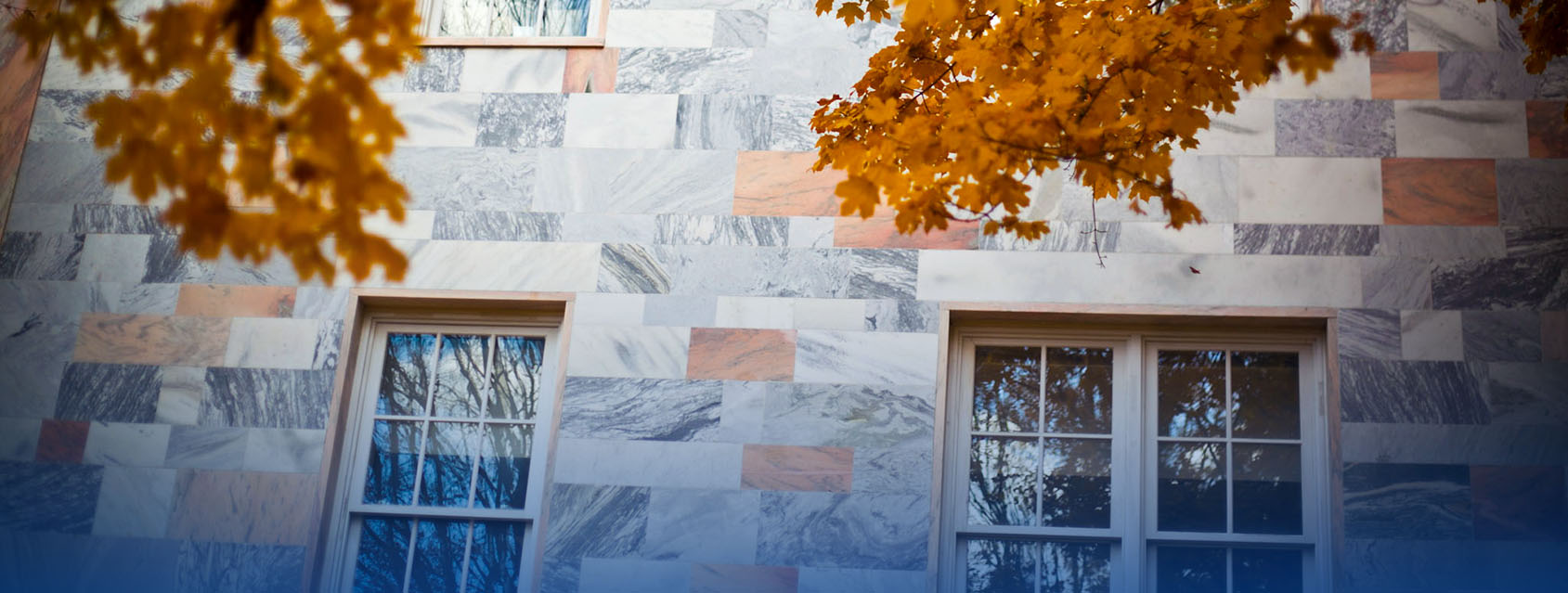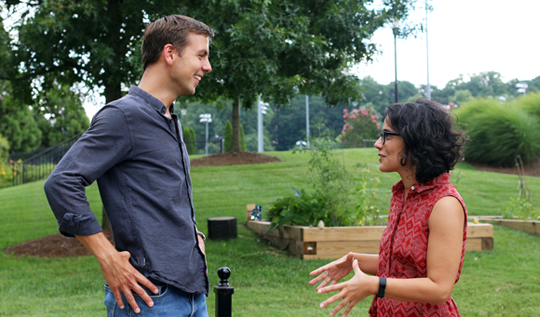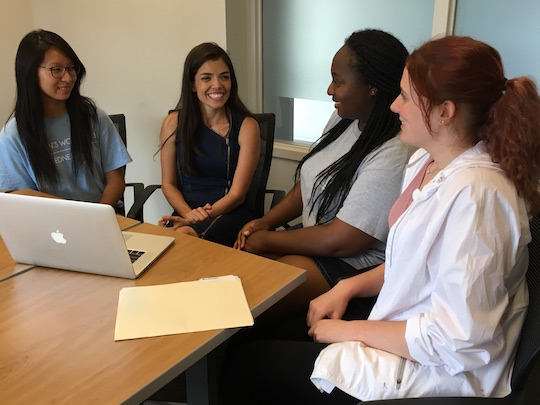
August 14, 2018
By S.A. Reid, Consulting Writer, Campus Life Communications
Emory’s Faculty in Residence (FIR) Program reaches a milestone this fall in serving Emory students. Last year, the program included three theme halls. This year's offerings include two theme halls and, for the first time, a living-learning community.
While Emory offers a range of theme housing opportunities for students, not all are part of the Faculty in Residence Program. FIR theme halls and living-learning communities bring together students who have applied and been selected to live together in the same residence halls during the academic year.
These students are connected by their common interest in the theme associated with the particular hall. Students commit to participate in hall activities, engage in collaboration, and build relationships with their peers. Living-learning communities, also structured around a shared theme, incorporate an academic component, differentiating them from theme halls.
Emory also offers FIR programming for residential students who do not live in one of the theme halls or the living-learning community.
The new living-learning community takes the FIR Program to the next level of facilitating meaningful faculty and student engagement beyond the classroom. The expanded programming enhances opportunities for the kinds of mentoring and role modeling that can lead to stronger student-faculty relationships and enhanced student learning.
 FIR Levin
FIR Levin
“Every year, we’re working to add improvements to make sure we’re providing the best possible outside-the-classroom learning opportunities for our residential students,” explained
Administered by the Office of Residence Life and the Office of Housing Operations, the FIR Program has been around in various forms for about 20 years. The program, a partnership between Campus Life and Emory faculty, provides students with an intentional residential education experience. This year, Pamela Scully, vice provost for Undergraduate Education, Scott Rausch, senior director of Residence Life, and Elizabeth Cox, director of residential education, collaborated to select faculty for the FIR Program.
Under the program, faculty members live free for at least two years in apartment-style quarters in student residence halls, plan events and activities for residents, and meet as a group monthly with FIR leadership. The arrangement enables students to live with and learn from faculty members, allowing students and faculty to get know each other personally.
Themes focus on sustainable gardening, social innovation, socio-political literacy
A garden theme is taking root at Undergraduate Residential Center (URC) on the Clairmont Campus. Returning FIR Levin Arnsperger is assistant director of Emory College’s ESL Program and teaches writing courses for international students. He will guide third and fourth-year students in learning more about sustainability, food, and farming, including how to maintain an educational garden. Students will decide what to plant in the future and how to use the harvest. Programming will also include guest speakers, field trips, and collaborations with other organizations and offices on and off campus, as well as discussions of topics related to gardening.
Meanwhile, social innovation is the theme at the Raoul and Woodruff residence halls, where first and second-year students will examine how people come together to identify and explore some of the world’s most pressing social challenges. The program – led by Wes Longhofer, returning FIR and assistant professor of organization and management – includes a mentoring component. Also planned are workshops with Emory faculty and Atlanta social entrepreneurs. In addition, students will try their hand at solving social problems in the Woodruff Social Innovation Lab.
The inaugural class of the Political, Ethical, Academic Community Experience (P.E.A.C.E.) Living Learning Community lives in the Clairmont Residential Center (CRC). Up to a dozen third
The course and the living-learning community for which it is a centerpiece are the
“I’m very excited for this new step,” said Huseyinzadegan. “A
FIR offers
In addition to faculty associated with the theme halls and the living-learning community, the program has two new FIRs – Eladio Abreu, a lecturer in biology, and Ana Catarina Teixeira, director of the Portuguese Program and a lecturer in Portuguese. Abreu and Teixeira are general FIRs, who plan events and activities open to all Emory residential students, whether or not they live in a theme hall or the living-learning community.

FIR Ana Teixeira, second from left, describes the program to students at the Clairmont Campus. From left: Pamela Liou, human health major; MarKeisha Pollard, biology major; and Alivia Burdette,
“That’s the beauty of the first year for FIRs,” said Oddman. “They get to figure out the areas that they are interested in and what they think students will also be interested in.”
Abreu said the FIR program offers him an opportunity to pay forward the mentoring and support he received from faculty as an undergraduate at Morehouse College.
“The FIR program gives me a chance to interact with students in a relaxed setting and increase my face time with them,” added Abreu, who someday hopes to lead a STEM-focused learning community. “The bigger part of this is forging connections between students who are taking rigorous coursework.”
Perry Onaka is a rising senior who helped plan social innovation programming and will serve
“One, Wes [Longhofer] is a really good cook,” said Onaka, a biology and chemistry major. “Two, you also get to learn more about him in a very casual setting. Three, you get to really talk about important issues and learn more about the Atlanta community in particular. I think that’s a great dinner.”
Learn more:
https://housing.emory.edu/loc/theme/index.html
https://housing.emory.edu/reslife/communities/